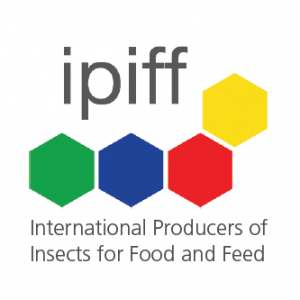A short talk with Antoine Hubert, IPIFF President, after the 2017 Conference
The IPIFF Conference was a great success, what are the most interesting news for the feed sector emerged during the meeting?
The European Commission (EC) is planning to allow insect-origin processed animal protein (PAP) in poultry feed: in the ‘best case scenario’, the extension to allow insect PAP in poultry feed would come in 2019.
Such move involves finding a reliable test method to check the DNA of proteins used: for that purpose, the EC has mandated the European Food Safety Authority (EFSA) to carry out a risk assessment on the plans, with the opinion expected in the second half of 2018. After that the proposal would have to be drawn up and approved by member states in the Standing Committee on Plants, Animals, Food and Feed (PAFF).The EC is also looking to open up to a wider range of substrates, to be permitted to feed insects (i.e. current EU legislation strictly limits substrate to plant-based materials & eggs and milk products).
The EC has asked the industry to suggest substrates and EFSA would then assess them for safety: IPIFF replied that former foodstuffs, including meat and fish would be the first alternative to be considered to feed insects. In the wake of the ‘aqua feed authorisation’ (i.e. authorisation of insect PAPs as feed for aquaculture animals) which is effective since 1st July 2017, the first insect based fish feeds should be on the market in the first half of 2018, according to IPIFF members.
The event also shed light on several projects undertaken by IPIFF, in the areas of food and feed safety: i.e. IPIFF members are engaged in the development of a guidance paper documenting best hygienic practices in insect production: according to IPIFF, these works should be helpful for insect producers to conform with applicable legislations (within EU or worldwide) or to influence market standards.
What the ones for the food sector?
The event highlighted latest implementing stages of the new EU novel food legislation (i.e. Regulation 2015/2283) for the insect sector.
The implementing measures on administrative and scientific requirements for novel food applications were voted by EU Member States on 17 November 2017. The adoption of the Regulation is foreseen by early December 2017.
The above-mentioned measures foresee that insect producers benefiting from the so called ‘Transitional period’ (i.e. if insect product was lawfully placed on the market by 1 January 2018) shall submit their application by 1 January 2019, in order to continue to sell the product.
In this context, the IPIFF Novel food task force (NF TF) is supporting insect producers in the preparation of novel food applications:
The NF TF is working on a report spelling out the main data required to support a Novel Food application (e.g. need for sub chronic animal tox studies, allergenicity) and justifications for excluding certain papers
The NF TF is also compiling studies demonstrating the safety of insects for human consumption.
What’s the development-forecast of the edible insects industry in the next 3 years?
Regarding these above contexts on food and feed, IPIFF see a strong development of the insect sector in Europe in next few years, with significant increase in production capacities in the next 3 years with large-scale factories coming out of the ground.
We are also delighted to see the development of non-European IPIFF counterparts (NACIA in North America, AFFIA in South East Asia). We have announced during IPIFF Conference last week the start of global cooperation between our association regarding topics like:
Promotion of good hygiene practices/setting of common standards in the area of food & feed safety;
Harmonization of transport conditions across the globe via harmonization of customs code;
Joint communication actions notably towards relevant international institutional actors.
Is there an evident obstacle on the way?
The concretization of regulatory opportunities is a key element (e.g. fast authorization procedure for novel food applications covering insect products & authorization of insect proteins in poultry feed and/or of a wider range substrates as feed for insects e.g. former foodstuffs containing meat & fish). Without these concretizations, the European Insect sector could be eventually jeopardized.





